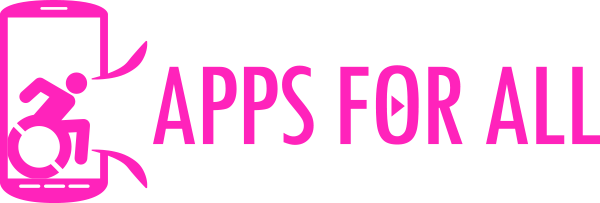Key Dates
Next Grant Round:
Applications for funding will open early 2025.
> Information about our Grants Program
Independent Grants Panel:
Results of the recent EOI will be notified Dec 2024.
> Information about our Panel
We can help: grants@accan.org.au
or phone 02 9288 4000
Subscribe to Grants Program mailings
On 1 October 2021 the Digital Transformation Agency released the exposure draft of the Trusted Digital Identity Bill for public consultation.
ACCAN made a submission in response to the Bill welcoming the stronger privacy protections and enforcement and penalty provisions that have been introduced. However, ACCAN argued in favour of an oversight authority with more funding and a mandate to ensure consumers were compensated for breach of the legislation.
Read more: Digital Identity Legislation - Phase 3 Consultation 2021
 Last week Vision Australia and a number of people who are blind or have low vision met with MPs at an event in Canberra to demonstrate audio description and lobby for its inclusion on TV. The event was organised in partnership with Greens Senator, Rachel Siewert, and was co-sponsored by Minister for Communications, Malcolm Turnbull MP, and Shadow Minister for Communications, Jason Clare MP.
Last week Vision Australia and a number of people who are blind or have low vision met with MPs at an event in Canberra to demonstrate audio description and lobby for its inclusion on TV. The event was organised in partnership with Greens Senator, Rachel Siewert, and was co-sponsored by Minister for Communications, Malcolm Turnbull MP, and Shadow Minister for Communications, Jason Clare MP.
Audio description on television is a verbal description - provided during gaps in dialogue - of visual elements such as scenes, settings, actions and costumes. You can get a sense of how it works from Vision Australia's YouTube video.
Vision Australia's Tell the whole story campaign encourages the Federal Government to implement audio description on Australian television so it can be enjoyed by the 350,000 people who are blind or have low vision.
Read more: Vision Australia pushing for audio description on Australian TV
Write comment (0 Comments)The Australian Communications Consumer Action Network (ACCAN) welcomes the three-year construction plan released by nbn but is concerned that some consumers will still be waiting up to five years for adequate broadband services. Information released about the National Broadband Network (NBN) has been limited in the last few years. This has left most consumers in the dark about when the NBN might reach them. We regularly hear frustration from our members and consumers over the lack of information and transparency of the NBN rollout. This announcement provides more information for a large number of areas and is due to be updated quarterly, meaning consumers will be more informed.
"nbn previously estimated that 20 per cent of premises in Australia were not able to access adequate services. Through this plan, and over the next three years, a large portion of these consumers will be connected to the National Broadband Network," said ACCAN CEO, Teresa Corbin. "However, ACCAN is very concerned for consumers who have not made the list and are currently unable to get adequate broadband services. Some consumers are experiencing this if there are no ADSL ports available or their premises are too far from exchanges. Addressing areas that are currently poorly served is one of our policy priorities that we announced earlier this week.
Read more: Five years too long to wait for adequate broadband
ACCAN provided a response to the Federal Government’s consultation on the Grant Guidelines for the Regional Connectivity Program Round 2. The program aims to use a place-based approach to telecommunications infrastructure investment that will respond to local priorities and maximise economic opportunities and social benefits for regional communities and businesses.
Read more: Regional Connectivity Program Round 2 Grant Guidelines
The ACCAN Annual General Meeting was held in Sydney on Wednesday, 2 September, 2015. At the meeting the following three candidates were elected to the Board:
- Sandra Milligan
- Ryan Sengara
- Chris Dodds
Congratulations to returning directors Sandra and Ryan and a warm welcome to Chris who is joining the ACCAN Board for the first time.
These three new Board members join the six continuing Directors below whose terms conclude at the 2015 and 2016 ACCAN AGM.
Read more: Results of ACCAN Board Election
Write comment (0 Comments)In a speech at the CommsDay Melbourne Congress 2015, ACCAN CEO, Teresa Corbin, spoke about the organisation's Policy Priorities for 2015-16. The priorities cover a range of consumer issues and relate to ACCAN's three core focus areas - affordable, available and accessible communications products and services for all Australians. The complete Policy Priorities are available on ACCAN's website.
As an organisation, ACCAN represents all residential consumers and small businesses, including not-for-profit organisations. Each policy priority aims to address a segment of the market that is not working for a group/s within Australia.
The Regional Telecommunications Review occurs every three years and is an opportunity to assess the issues impacting regional, rural and remote consumers of telecommunications services.
Since the last Review, regional communities have experienced natural disasters and the COVID-19 pandemic, both of which have highlighted and heightened the need for access to reliable, resilient and affordable telecommunications services. Whilst there has been significant investment in telecommunications infrastructure in recent years, ACCAN’s submission highlights that there remains room for improvement when it comes to accessing high quality services and having the digital skills to benefit from those services.
 Our 2015 Conference, Dollars and Bytes – Communications affordability now and tomorrow, is fast approaching! Only one week to go, so now is the time to register before registration closes at midnight on Friday, 28 August. (Due to browser settings some people may have trouble connecting to the registration site using Firefox. If this is the case, please use another browser such as Google chrome).
Our 2015 Conference, Dollars and Bytes – Communications affordability now and tomorrow, is fast approaching! Only one week to go, so now is the time to register before registration closes at midnight on Friday, 28 August. (Due to browser settings some people may have trouble connecting to the registration site using Firefox. If this is the case, please use another browser such as Google chrome).
It's going to be a great two days. We've got over 40 speakers and panellists from a range of organisations across industry, community groups and government.
Access the full Conference Program online. Some of the presentations and sessions to look forward to are:
- The keynote by Claire Milne, Visiting Senior Fellow, Department of Media and Communications, London School of Economics
- The opening address by the Hon. Malcolm Turnbull MP, Minister for Communications
- Presentation by ACCC Chairman, Rod Sims
- Presentation by Digital Transformation Office CEO, Paul Shetler
Read more: One week until the ACCAN Conference!
Write comment (0 Comments)The Australian Communications Consumer Action Network (ACCAN) is pleased to see the downward trend of complaints to the Telecommunications Industry Ombudsman (TIO) continue with a drop of 10.5 per cent shown in the 2014-15 Annual Report. However, the number of new complaints recorded (124,417) is still a significant number with some key problem areas emerging in the Report that need to be improved.
One of the positive trends seen in the past year is the decrease in mobile coverage complaints which fell by 49.2 per cent. Mobile coverage issues affect many consumers, particularly those in rural and remote areas. The drop in complaints in this area is positive especially as more consumers move toward being mobile-only. Recent ACMA research found that 29 per cent of Australians had only a mobile phone and no fixed line telephone at home.
Read more: TIO complaints decreasing but problem areas still exist
The Australian Communications and Media Authority (ACMA) is developing a Statement of Expectations (SoE) for the telco industry to guide the way it identifies and responds to customer vulnerability. The SoE sets out goals, outcomes and examples for telcos to adopt in different areas that impact consumers experiencing vulnerability, including customer service, selling and contracting, and disconnection.
ACCAN’s submission strongly supports the goals expressed in the SoE and makes a number of recommendations to expand the scope and improve the effectiveness of the SoE.
Read more: ACMA Customer Vulnerability Statement of Expectations
 After a lot of hype, Microsoft has finally delivered Windows 10.
After a lot of hype, Microsoft has finally delivered Windows 10.
With a bunch of new features and improvements, such as a good firewall and rapid start-up of your favourite programs, it is a very attractive computer interface, but there is a real sting in the tail if you are someone on a restricted internet plan!
First of all to upgrade to Windows 10 you have to download the whole thing from Microsoft.
Read more: Is Windows 10 free? Not entirely
Write comment (2 Comments)The Australian Communications Consumer Action Network (ACCAN) welcomes the ACMA's action to direct six providers to comply with the Telecommunications Consumer Protections (TCP) Code. The six telcos listed by the ACMA have failed to lodge compliance documents with Communications Compliance (CommCom) by 1 April, 2015. They also failed to lodge this documentation with CommCom in 2014.
In ACCAN's view the TCP Code compliance regime is a light touch approach. Under the Code each telco that provides services to consumers must lodge two documents with CommCom annually by 1 April. These documents are: a Customer Information Compliance Statement setting out where customers can access information that is required to be made public and a Compliance Attestation that is endorsed by the CEO or a senior manager confirming that it complies with the Code and has a Compliance Plan that meets Australian Standards.
Read more: ACCAN welcomes ACMA action on TCP Code compliance
ACCAN has prepared a submission to the Communications Alliance regarding Telecommunications Industry Code DR C666-2021, Existing Customer Authentication.
This code is intended to protect consumers against fraudulent activity and outline how telecommunications providers with ensure that activity related to a customer’s account is properly verified and is actually authorised by the customer or their authorised representative.
Read more: Communications Alliance Industry Code: Existing Customer Authentication

With the 2015 ACCAN Conference fast approaching, we can now reveal the shortlist for the second Apps For All Challenge!
The Challenge acknowledges those Australian developed apps which are most accessible for all consumers, including consumers living with a disability or older Australians. An accessible app is designed with the largest number of people in mind. Accessibility is not only crucial for the almost 1 in 5 Australians living with some form of disability, but it also means developers can target millions more customers who were previously locked out of the app market. 
This year’s Challenge is sponsored by Telstra. The lucky winners will receive a cash prize from Telstra as well as promotion through Telstra’s social media channels.
We’ll be announcing the winners at a ceremony on 1 September at our National Conference, Dollars and Bytes – Communications affordability now and tomorrow. You can register here to attend.
Good luck to all of the shortlisted apps and developers!
Read more: Apps For All Challenge shortlist announced
Write comment (0 Comments)The Australian Communications Consumer Action Network (ACCAN) congratulates nbn and Arianespace on the successful launch of the Sky Muster satellite. Sky Muster is the first of two satellites that nbn is launching as part of its plan to provide broadband services to all premises in Australia. The second satellite is expected to launch mid-2016.
Satellites will provide broadband services to three per cent of premises in Australia, primarily in regional and remote areas including the islands that make up Australia. Consumers in these areas currently have poor to no broadband, with many facing difficult situations created by the lack of adequate services and exorbitant costs.
Read more: ACCAN congratulates nbn and Arianespace on successful satellite launch
Local number portability allows consumers to transfer – or ‘port’ – their local landline telephone number to a new service with a different telco provider. This allows consumers to switch providers without losing their number, which supports competition in the telco market.
Local number porting can be a complicated technical process. The Local Number Portability Code (the Code) outlines the procedures that telcos must follow in relation to local number porting. It is important that the Code is thorough and fair so that consumers do not lose their local number in the process, or face lengthy delays when switching providers.
ACCAN’s submission to the Code review makes recommendations to amend the Code to improve consumers’ experiences of local number porting, in line with changes in the market and providers’ technical capabilities. We also recommend that consumers’ rights during the local number porting process should be reviewed and strengthened.
 This year our keynote speaker for the ACCAN National Conference is Claire Milne, MBE, Visiting Senior Fellow, Department of Media and Communications, London School of Economics.
This year our keynote speaker for the ACCAN National Conference is Claire Milne, MBE, Visiting Senior Fellow, Department of Media and Communications, London School of Economics.
Claire will bring a wealth of knowledge to the ACCAN Conference. She has worked in the telecoms sector since 1975 and held a series of management jobs within BT, including teletraffic theory, exchange and network design and regulation. Since 1989, she has been a consultant, first with Ovum and then in her own company Antelope Consulting. She has been a Visiting Senior Fellow at LSE since 2003. From 2008 - 2014 she chaired the Consumer Forum for Communications at Ofcom.
We interviewed Claire to get insights into her views on communications affordability in the lead up to the ACCAN Conference.
Read more: An interview with keynote speaker, Claire Milne
Write comment (0 Comments)After a small but respectable drop in mobile bill shock due to usage notifications shown in the ACMA's Spend Management Tools and Alerts Survey 2015, further gains need to be found through the introduction of real time notifications. Currently these warnings can be up to 48 hours out of date by the time consumers receive them. With high excess usage charges, you can rack up a significant debt without even realising it.
Currently Telstra is the only telco to announce real time usage notifications. The ACMA research showed that delays in receiving information are "the major cause for dissatisfaction with the alert system" and this is where consumers can get caught out. ACCAN is calling on all telcos to implement real time usage alerts so consumers know when they are approaching their limit and as soon as they have reached a limit. This would allow them to more easily manage their usage and avoid expensive excess charges.
Read more: ACCAN calls on all telcos to introduce real time usage alerts
On 13 July 2021, the Australian Government opened consultation on options for regulatory reforms and voluntary incentives to strengthen the cyber security of Australia’s digital economy.
ACCAN made a submission in response to the Strengthening Australia’s cyber security regulations and incentives discussion paper. ACCAN submitted that:
 Access to affordable telecommunications for all consumers is one of ACCAN's three key objectives. Affordability is becoming increasingly important as access to telecommunications services is essential for full economic, social and cultural participation.
Access to affordable telecommunications for all consumers is one of ACCAN's three key objectives. Affordability is becoming increasingly important as access to telecommunications services is essential for full economic, social and cultural participation.
For example, the main method of communicating with many government agencies is increasingly through online channels and, with the Coalition Government's Digital First Strategy, this will only become more widespread. This Strategy will require all government services and public interactions to be available online by 2017.
In order for the Digital First Strategy to be a success, all Australians need to have access to the internet. There are a number of factors that contribute to a lack of internet uptake, and affordability is often found to be a factor.
Read more: Affordable communications for all Australians
Write comment (0 Comments)The Australian Communications Consumer Action Network (ACCAN) welcomes the appointment of Senator Mitch Fifield to the role of Communications Minister. "As the peak organisation representing consumers and small business on telecommunications, we're looking forward to engaging with Minister Fifield on important issues that affect users," said ACCAN CEO, Teresa Corbin.
"We are pleased that Prime Minister Malcolm Turnbull has called for Australia to embrace the future and use digital disruption to our advantage. As a nation of early technology adopters, Australian consumers are keener than ever to join in and benefit from innovations that deliver better, more affordable and accessible communications choices."
For example, the establishment of the Digital Transformation Office is a great opportunity to be a world leader and ensure Government services are even more accessible as they move online. We are looking forward to helping ensure this initiative works to overcome any barriers for those unable to use or access the internet.
Read more: ACCAN welcomes appointment of new Communications Minister
In July 2021 Treasury released exposure draft amendments to the Consumer Data Right rules and explanatory materials for consultation (version 3 of the rules).
The Treasury’s exposure draft amendments changed the CDR Rules to “reduce barriers for participation in open banking” and “increase participation in the CDR by data recipients and consumers” by:
 Last week ACCAN's CEO, Teresa Corbin, and Director of Policy, Una Lawrence, travelled to the Electorate of Indi (northeast Victoria) to meet with residents and discuss issues around telecommunications services.
Last week ACCAN's CEO, Teresa Corbin, and Director of Policy, Una Lawrence, travelled to the Electorate of Indi (northeast Victoria) to meet with residents and discuss issues around telecommunications services.
ACCAN was invited to attend community meetings and a meeting with local government representatives and businesses by Indi's Federal Member of Parliament, Cathy McGowan. Meetings were held in Beechworth, Wangaratta, Benalla and Oxley.
The issues experienced by residents are not unique to Indi and are experienced by many living in rural and remote areas. Availability and accessibility of quality communications services are key focus areas of ACCAN's work.
Read more: Indi residents experiencing a range of telecommunications issues
Write comment (0 Comments)
The Australian Communications Consumer Action Network (ACCAN), along with Telstra, has today announced the winners of the second Apps For All Challenge at the 2015 ACCAN National Conference in Sydney. Launched last year, the Apps For All Challenge is Australia's only competition that awards the most accessible smartphone and tablet apps.
The Challenge awards apps in four categories. Winners were given a cash prize from Telstra and will receive promotion through Telstra's social media channels.
Read more: Winners of the 2015 Apps For All Challenge announced
